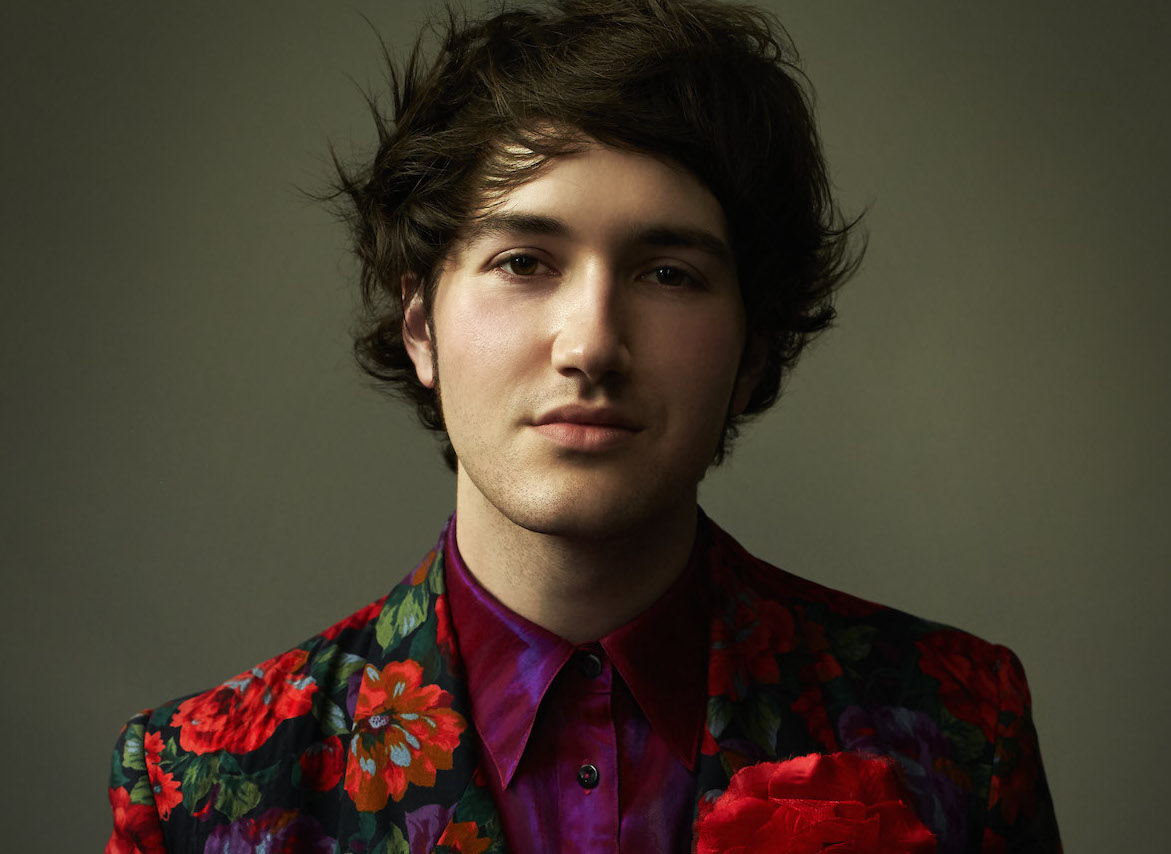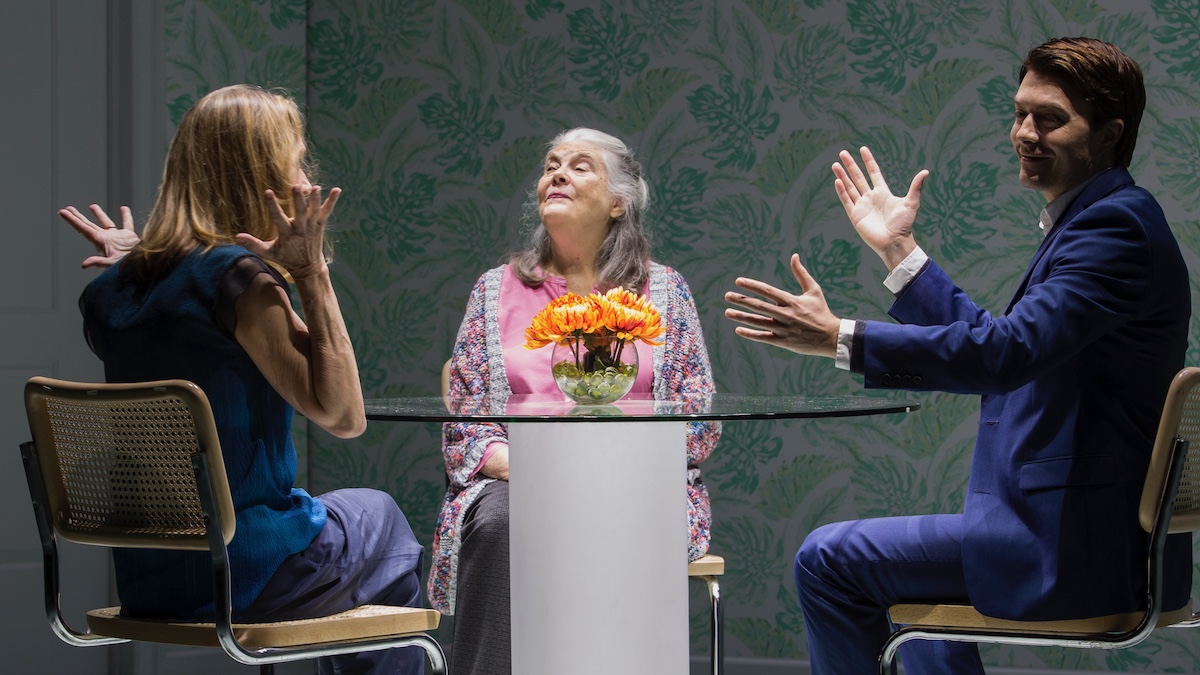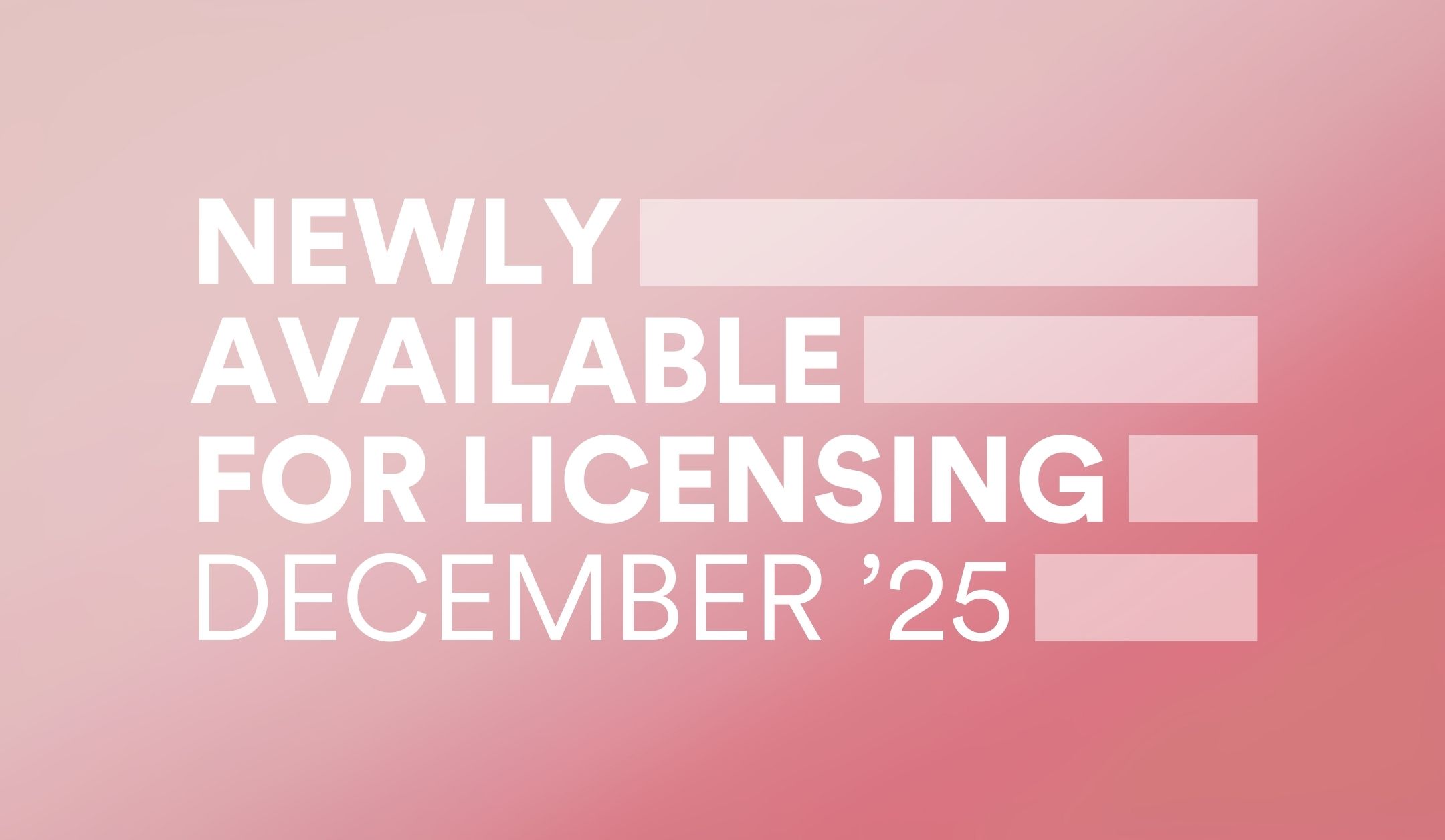
Max Vernon is a composer, lyricist, playwright, and performer. He’s been behind multiple Off-Broadway hits, including The View UpStairs (Off Broadway Alliance Awards nominee for Best New Musical), and KPOP (Richard Rogers Award 2018, nine Lortel Award nominations). He has written for Keen Company and is the recipient of the Jonathan Larson Grant, New York Stage and Film’s Founders Award, the New York Foundation of the Arts Fellowship, and the JFund Award from the Jerome Foundation. As far as I can tell, he is currently developing three new musicals. He’s also a visual artist; he landed a spot in Scholastic’s Art.Write.Now program, which led him to paint for a live audience in the glass storefront of the World Financial Center. And, at twenty-nine years old, Max is just getting started.
What was the first musical you experienced, be it by listening to the soundtrack or watching onstage?
When I was five years old I used to endlessly listen to my dad’s cast album of Les Miz and because “Castle On a Cloud” was perfectly in my range, I really really really wanted to play Cosette on Broadway. That was my five-year-old, genderf*cked dream. I grew up begging my parents to take me to shows and wait in the TKTS line, loving the magic of not knowing what would be on the board — the surprise, the possibilities, the arguing over what to see. Then when I was nine or ten I saw Rent for the first time, and that was a total game changer for me — I remember sitting there with my jaw on the floor the entire show.
You’ve really shown a prolificacy for writing true contemporary musicals, and demonstrated a talent for finding new and interesting ways to tell stories. What themes, musically and otherwise, do you like to explore in your writing?
I often write shows as a way of investigating and critiquing things I don’t necessary love about myself — to find peace and redemption in that. I love writing these jaded, cynical, self-absorbed characters, and then flinging them into situations that force them to radically shift their way of thinking; helping those people — myself — rediscover magic, wonder, and love. I’m also very interested in the theme of self-actualization: how people transform themselves to become the vision they have in their head, what is gained and sacrificed in that process. That’s true of Wes in The View UpStairs, who has affected this “fame-whore fashionista” persona to convey success, my Korean Popstars who sacrifice their personal lives to be a part of the “Idol Machine,” and my Tattooed Ladies whose decision to cover their bodies in ink turned them into both celebrities and social pariahs.
In an interview with OUT Magazine you mention that, in earlier years, you fell in and out of love with musical theatre. Could you expand on that? In the end, what made you decide that you wanted to write for the form?
As I mentioned earlier, musical theatre was my first love/obsession. Then, growing up I was extremely bullied in middle school, which caused kind of a schism of identity; I suddenly felt like being a theatre kid was so embarrassing and making me a target. So from about twelve to twenty-two, I threw myself headfirst into fashion, and punk, weird arthaus cinema, drugs, sex, anything that felt subversive or subterranean. I was performing in New York as a singer-songwriter, writing songs that had these really ambitious story narratives and were exploring character through music, etc. People were always telling me I should be writing musicals and I always fought back, like — “I’d rather jump out a window! I hate musicals!!” And then finally one day, I was like, “FINE! Maybe I’ll try this stupid thing that I despise.” And immediately it was like the floodgates opened up. I wrote my first musical (WIRED) with an eighty-page script and twenty-three songs in two weeks; I didn’t sleep or leave the house. Ars Nova gave me a twenty-nine-hour reading, I got to see actors perform my work for the first time, and then I was completely hooked. I had rediscovered my original passion. I decided to go back to grad school, and eight years later, my life is pretty singularly focused on musical theatre. These days, I’m trying through my music to reunite the two halves of myself; to create experimental musicals the weird seventeen-year-old punk, fashion hipster me wouldn’t be embarrassed by.
Let’s talk about The View UpStairs. It’s based on the (sadly, largely forgotten) death of thirty-two people from a fire at a gay bar, the UpStairs Lounge, in New Orleans in 1973. What inspired you to create a musical out of the tragedy?
When I first found out about the UpStairs Lounge fire seven years ago, almost no one had heard of it — not even my professors — even though I was a gender/sexuality studies major at this super liberal institution! And this was before the shooting at Pulse in Orlando, so it was the worst attack in US history on the LGBTQ community at the time. I thought, “How has this event, so important to our shared history, been completely forgotten?” So part of it was a desire to shine light as an activist, but I also hoped that by contrasting two different eras of queer life, I could begin to understand my own history and place in the world.
Since your score explores musical themes from the seventies era (disco, glam, rock), can you talk a bit about who your musical influences were for The View UpStairs?
My parents divorced at an early age, and so growing up I only saw my father a couple months a year. We were so distant and didn’t really know each other for such a long time, but his classic rock station during car rides became one of the few ways we could bond with each other. So even when I was six or seven, we would rock out in the car together to Fleetwood Mac, Jim Croce, Queen, David Bowie, Lou Reed, Stevie Wonder, etc. I deeply fell in love with the music of that era. All of that was in my head while I was composing the score, including Sly Stone, Joni Mitchell, Laura Nyro, etc.
Beyond shedding light on forgotten LGBTQ+ history, what do you want audiences to take away from the musical?
The opening song is called “Some Kind of Paradise,” which has the lyric:
I think I found some kind of paradise:
no angel wings, or fairy dust
just the rush of lust, but it’s all right
And though this place is far from Heavenly:
no golden throne, and the ecstasy
is just temporary, it’s all right.
In contrasting 1973 with 2017 I realized, there is not (and will never be!) a perfect time to be alive. Things are always horrible and also wonderful. We are constantly in a state of evolution and crisis culturally and socially. There is progress and there is the inevitable backlash to that. So we can’t sit around waiting for utopia, we have to create it ourselves! The UpStairs Lounge was a sanctuary for people to be their authentic selves; to love, to create, to fly their freak flag high, and to cultivate community. The best way to honor those we’ve lost in the past is to create new places of connection in 2017; to put that beauty back into the world through our art and relationships.
You recently found further success as part of the writing team of KPOP at Ars Nova. When did this project come about for you? How did the development of an immersive theatre piece differ from that of a traditionally written musical?
So Ars Nova knew me from my first musical, WIRED, which had an all electronic synth score and was about robot popstars, celebrity, etc. So Woodshed Collective approached Ars Nova with the idea of doing an immersive piece about KPOP, but said, “We don’t know anyone in musical theatre who composes and can produce electronic music.” Ars made the love connection. I brought Helen Park onto the project, because we had bonded in grad school over our love of pop music, and I knew she was a fierce, authentic KPOP fan and producer in her own right. The piece took four years to develop, and happened pretty much at the same time as The View UpStairs. A month after TVU closed Off-Broadway, we began rehearsals for KPOP. It was a very insane, exciting time.
The biggest challenge with KPOP was that we often had to write to a time signature. The show was split over three floors of a building, in some thirty different roo
ms. Actors had to rush up and down the stairs, going in an out of rooms in order to trigger certain scenes. If those timings ever didn’t align, audiences would just be stuck in a room waiting for something to happen and actors would have to stall and improv. For the first couple previews, the math of the show was broken and it felt like we were facing the firing squad, because we knew the exact moments at which the show would break down — but we had to watch the train run off the tracks in order to fix it. We had to shorten or elongate songs to make that complex timing calculus work. And then there’s the problem of rehearsals going on in like ten places at the same time, and not knowing where you were most needed. Our haze machine set off the fire alarm, causing evacuations close to ten times, our production meetings went until two a.m. and felt like war rooms. It was chaos, until we solved the puzzle, and then it was one of the most magical things I’ve ever seen. I am super proud of my whole KPOP family.
What can we expect next from you? And as someone who is driving the form into the future, where do you see musicals going?
Hopefully The View UpStairs playing at a theater near you, and a KPOP 2.0 (fingers crossed). I’m currently writing three new musicals: The Tattooed Lady (about tattooed ladies in the late 1800s, early 1900s), Show & Tell (about the Apocalypse), and Painless (about surgery in the 1800s before anesthetic was invented, as well as our current opioid epidemic). Every new show for me is an experiment both in terms of form and content: a chance to top myself creatively. As an artist, my greatest ambition is simply to be fearless. To put things onstage that seem impossible, provocative, political, and necessary.
My hope is that the musical theatre industry becomes more inclusive of women and writers of color because their perspective is so needed and important. I think Broadway is going to increasingly become a jukebox schlockfest, but in response to that, I think young artists are going to reclaim Off-Broadway as a place for art and experimentation. I want to see musical theatre scores embrace techno, trip hop, ambient, indie rock, house, ska, metal, etc. In the musical theatre future I am creating, no one is ashamed to love musicals; they are daring, relevant, and cool.
To learn more and inquire about performing The View UpStairs, please visit our website.

Inspired by True Events: A Conversation with Playwright Ryan Spahn

Plays About Technology

